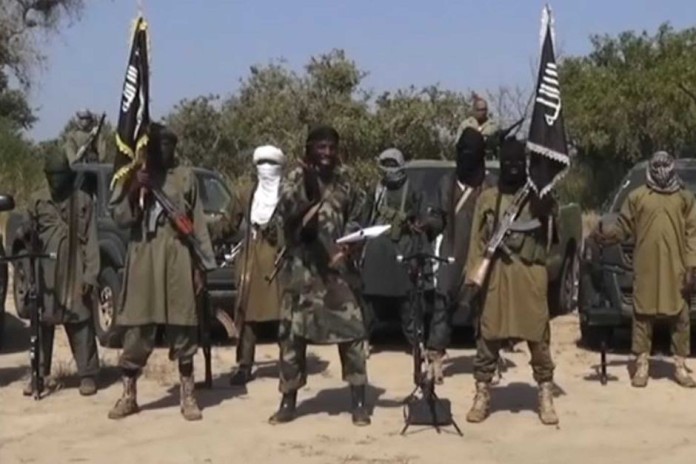The International Crisis Group (ICG), a Brussels-based conflict prevention group has said that Nigeria’s adopted strategies to counter violent extremism that exists majorly in her northern region had largely failed to achieve the desired outcome.
ICG said in a major report titled, ‘exploiting disorder: al-Qaeda and the Islamic state,’ which it prepared to highlight the new waves of terrorism in the world that standard counter-terrorism toolkits adopted by Nigeria and other countries around the world had made little impacts in their fight against extremism.
The report which was released Friday in Abuja by ICG explained that anti-terrorism toolkits such as terrorists designation; financial sanctions; travel bans; targeted killing; and special forces’ operations, had all proved to be insufficient against radical groups like Boko Haram.
It was presented to a wide spectrum of stakeholders by ICG’s Director for Africa, Dr. Comfort Ero; its Senior Analyst for Nigeria, Nnamdi Obasi; and its Senior Analyst for West Africa, Dr. Vincent Foucher at the official residence of the Swiss Ambassador to Nigeria, Mr. Eric Mayoraz.
ICG in the report called on Nigeria to quickly consider adopting new strategies towards its fight against Boko Haram, adding that the country could as part of the new strategies, develop its response to Boko Haram and any other terror group in the country on a case-by-case basis, as against its so-called standard responses to insurgency.
It also recommended that in dealing with violent extremism, Nigeria should henceforth consider applying judicious force; open lines of communication despite the group’s hard-line stance; and invest more heavily in conflict prevention.
Further on its recommendations, ICG said in countering terror groups in Nigeria, the government should apply force more strategically in order not to alienate local communities or even push them to support the groups.
While reflecting on the bad choices the government had made in its fight against Boko Haram, the report said its initial refusal to dialogue with Boko Haram, following the 2009 Maiduguri crackdown was a lost opportunity that may have de-escalated the current conflict.
It said during a question and answer session on the report that similar choice was being made by the government in its fight against resumed insurgency in the Niger Delta.
“This landmark report is part of a new Crisis Group project on violent extremism and modern conflict, focused on understanding the diverse movements involved and developing policy options,” said Ero who observed that the reach and strength of violent extremist groups now appear more dangerous across a wide belt that stretches
Similarly, Obasi in his response to a question on the renewed insurgency in Niger Delta said: “It is a bit disappointing on the Niger Delta because we forewarned. We really wished that the government had responded earlier.”
He also explained that in the report’s recommendation for judicial use of force, it meant that intelligent; clinical and appropriate application of counter-terrorism toolkits should be adopted to ensure accountability as expected.






